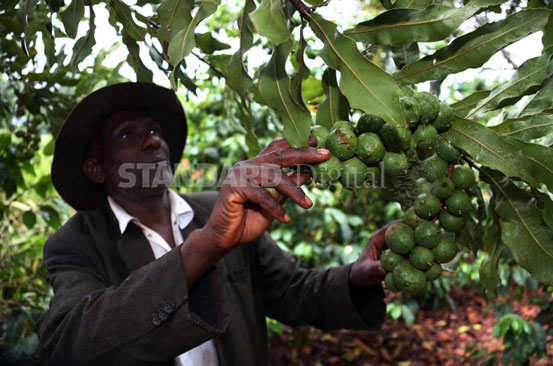×
The Standard e-Paper
Stay Informed, Even Offline

John Kahiu’s farm in Thandii village, Tetu district, Nyeri County stands out for its attention to detail, order and blooming crops.
Kahiu, 65, is a perfectionist. In his two-and-a-half acre farm, not a weed stands in the neat garden. The green trees dotting the farm packed with nuts are macadamia trees which are almost ready for harvest.